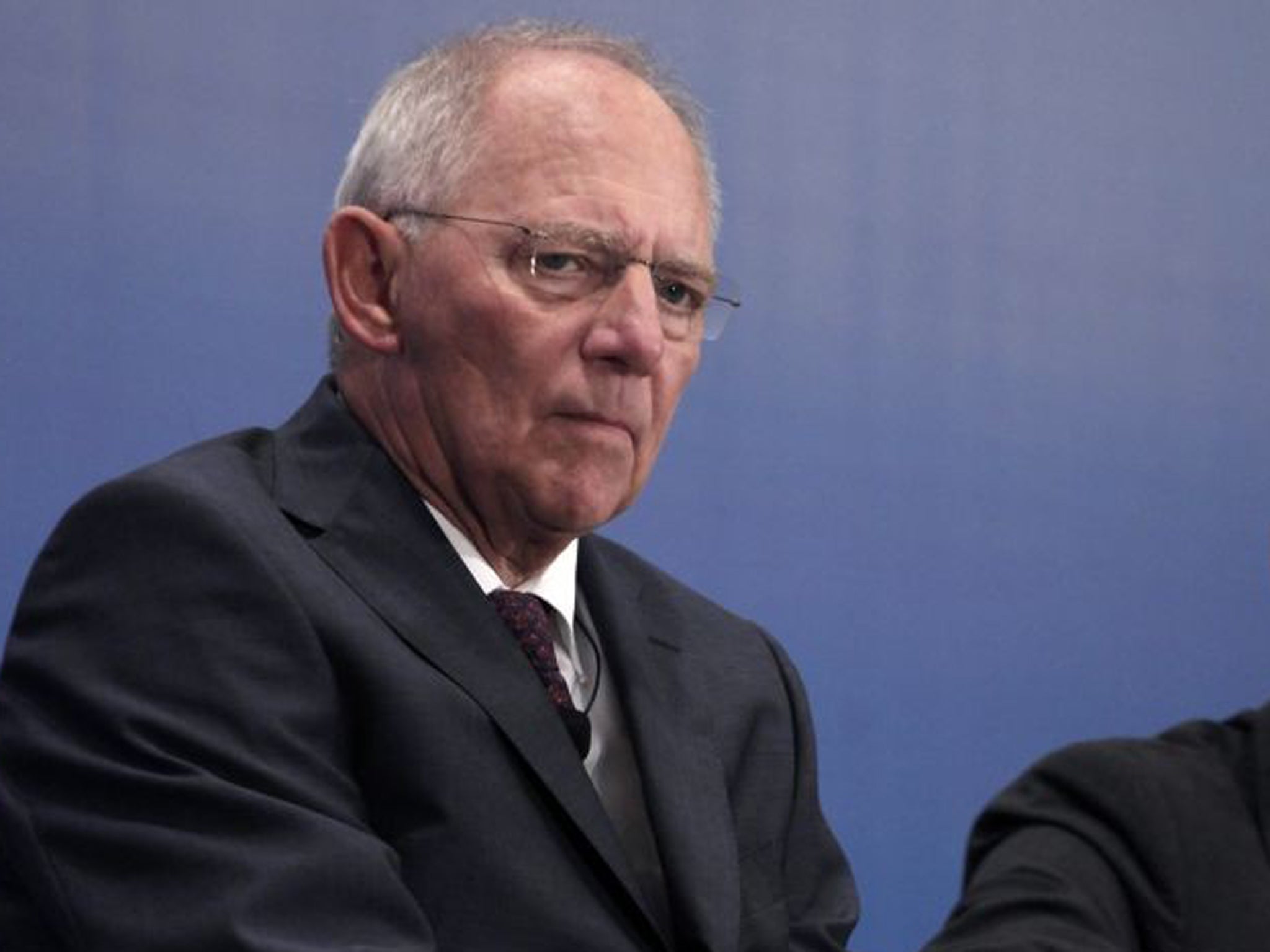Police deployed on to the streets of Athens as German finance minister Wolfgang Schaeuble visits Greece
Wolfgang Schaeuble is visiting the austerity-ridden country today to offer a further €100m euros of funding, however many blame Germany for the country's economic woes

Some 3,500 police have been deployed on to the streets of Athens today in expectation of protests as German finance minister Wolfgang Schaeuble makes his first visit to the country since 2009.
Mr Schaeuble is visiting Greece, which is in its sixth year of recession, to offer a €100m for fund to promote economic growth.
With unemployment in the country at nearly 27 per cent - more than double the eurozone average of 12.2 per cent - many see Germany to blame for forcing cuts in return for multi-billion euro bailouts.
Speaking on German TV yesterday evening, Mr Schaeuble said: "My visit comes at the request of the Greek Prime Minister to show that we trust Greece, that we want to do everything we can bilaterally to support Greece on its difficult path."
"I'm not the super-troika," he added, referring to the partnership of the IMF, the European Central Bank and the European Commission set up to address the economic issues facing southern Europe.
Many in Greece feel that German Chancellor Angela Merkel is stalling a debate on further debt relief for Greece until after federal elections in September. She has said that she does not see the need for a fresh "haircut" any time soon.
While echoing these sentiments, Mr Schaeuble has not ruled out a fresh aid programme, saying that international lenders may have to step in after the current one expires at the end of next year.
Germany is keen to maintain its image amongst the southern European countries, many citizens of which view their northern neighbour as setting an agenda of austerity, as social and political unrest grows.
One headline in an Athens newspaper made reference to wartime reparations, that many Greeks feel Germany owe to them. "Mr. Schäuble, Bring Back What You Stole!" it read in German.
"I can understand the people in Greece," Mr Schaeuble said, while reiterating that reforms offered the only path to a sustainable future for the Greek economy.
"You won't get the yacht owners and the super-rich because they don't have their place of residence in Greece anymore. That's always the case. World history is never totally fair. Of course that annoys me," he added.
Germany has recently moved to more bilateral agreements within the eurozone, announcing a grant of roughly €1bn (£860m) to small and medium-sized companies in Spain. Mr Schaeuble indicated that the deal could provide a model for future dealings with other countries, particularly Portugal.
Greece last week received a further lifeline from the IMF and eurozone. However patience is waning, as the country is seen to have not kept its side of the bargain by failing to make reforms, despite being supported by emergency funds since May 2010.
Join our commenting forum
Join thought-provoking conversations, follow other Independent readers and see their replies
Comments
Bookmark popover
Removed from bookmarks